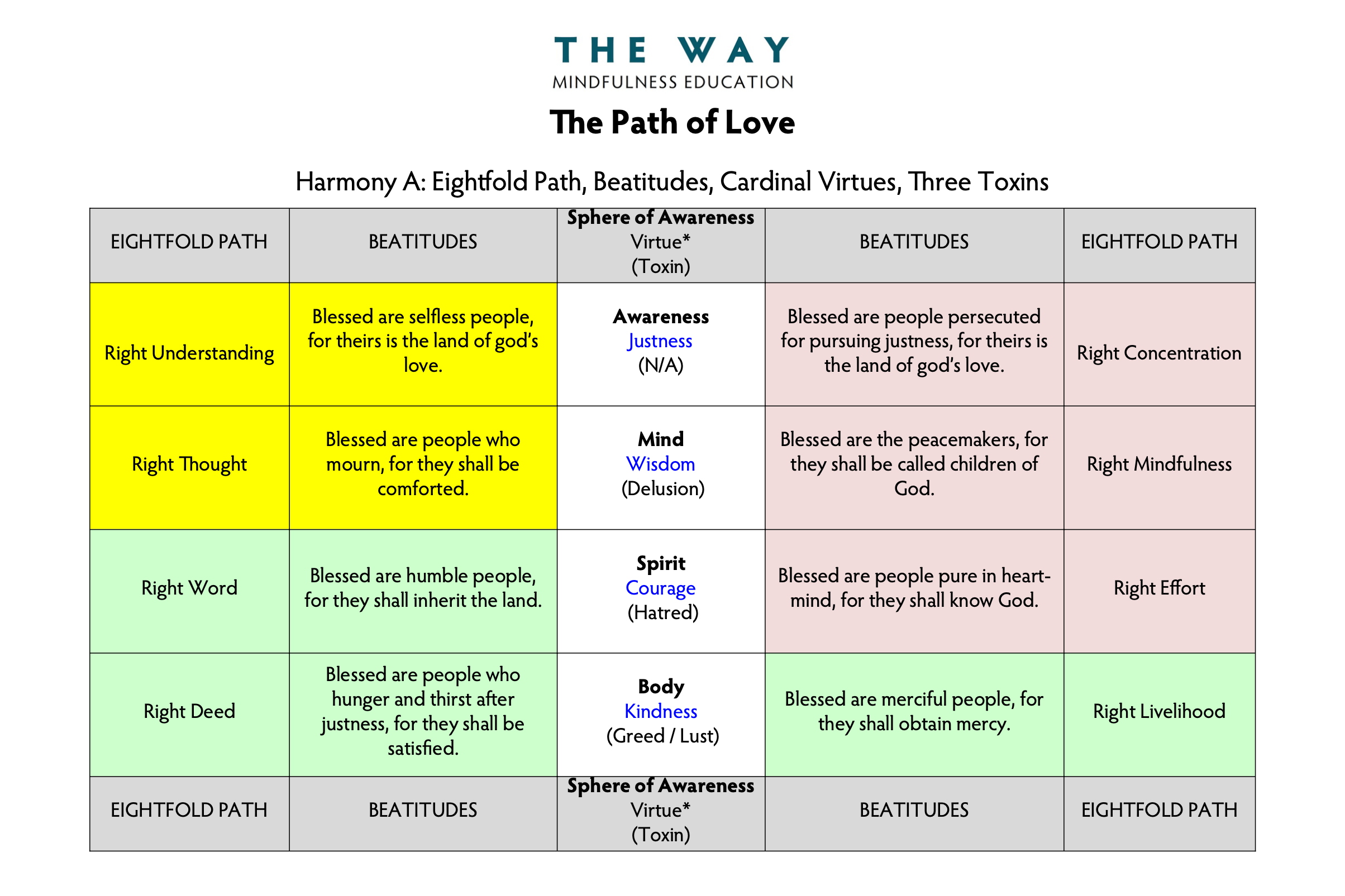a new version of old religions?
Did I mention I would like to start a new wisdom tradition? I invite you to co-create it with me. No experience? No problem. We have a headstart. The hard work of developing wisdom-tradition prototypes has already been done. All we have to do is update the variables for our time and place.

The Way with a Thousand Names and The Path of Love
Did I mention I would like to start a new wisdom tradition, aka a new religion? It’s true. I would like to start a new wisdom tradition. Want to join me? I invite you to co-create this new tradition with me.
No experience in starting wisdom traditions? No problem. I don’t have any experience in developing wisdom traditions either, not exactly. That’s how these things tend to get started, by people with no experience. : )
No interest in starting a new “religion”? That’s ok too. This new tradition is for human beings, and that includes you. Consider Love God a kind of ongoing focus group. As a member of the intended audience, your perspective is important. Even if you don’t engage in any of the activities that end up forming part of this new spirituality, your input can be valuable in shaping it.
Plus, it should be fun, right? After all, what’s the point of starting a new religion if it’s not a joyful process? “The process is the product,” I like to say. And this product – a new tradition – and the process of developing it had better be hopeful, or else not even I will join. Besides, who doesn’t need a little more hope and joy in their life?
Of course, new traditions of the religious sort tend to come in for their share of derision, persecution, and worse. I expect that. But, like spiritual pioneers of the past, I also expect to be joyful despite all that.
To be clear, I really don’t think a new religion is necessary. I do think a new expression of existing wisdom traditions is what we need. The old forms are not working for many people anymore. They are not working, as they once did, to transform souls: FROM disconnected, selfish individuals, TO interconnected, loving human beings. The good news is that given our vantage point, hundreds or thousands of years after the development of many wisdom traditions, we are in a position to look back, rediscover the best spiritual disciplines and techniques, and apply them to our time and place.
And more good news. I’ve been studying wisdom traditions, mostly through their sacred texts, for a few decades. About 10 years ago, I started to detect a pattern common to major traditions.
You know how stories all tend to have the same pattern? No matter how different their surface-level details might be, almost all stories share an archetypal pattern often called The Hero’s Journey. The hero may change, but the hero’s journey remains more or less the same. That’s the premise of The Hero with a Thousand Faces, a book by Joseph Campbell, the mapper of The Hero’s Journey.
Well, in my experience, it turns out that the same is true for wisdom traditions. Despite surface-level differences, they all share a universal pattern. I call that The Path of Love. And The Path of Love is at the heart of The Way with a Thousand Names, my name for the single, solid, and stable tradition beneath the everchanging shape of diverse religions. Here is one way to represent it.

There's a lot to say about this universal pattern common to wisdom traditions, and a lot of questions to answer. For example:
- How have diverse traditions developed The Path of Love in unique ways, based on their cofounders, time, and place?
- If there is one pattern common to major wisdom traditions, why hasn’t it been discovered before now?
- Why is the Path of Love so simple yet so often misunderstood and difficult to follow?
- If all religions share the same pattern, why do they seem so different?
That's what future posts will be about, that and connecting our way of life in this time and place to the old, universal pattern at the heart of wisdom traditions, The Path of Love.
So, in this business of starting a new wisdom tradition, we have a bit of a headstart. The hard work of developing many diverse traditions, all based on the same pattern, has already been done. All we have to do is update the variables for ourselves here and now.

Comments ()